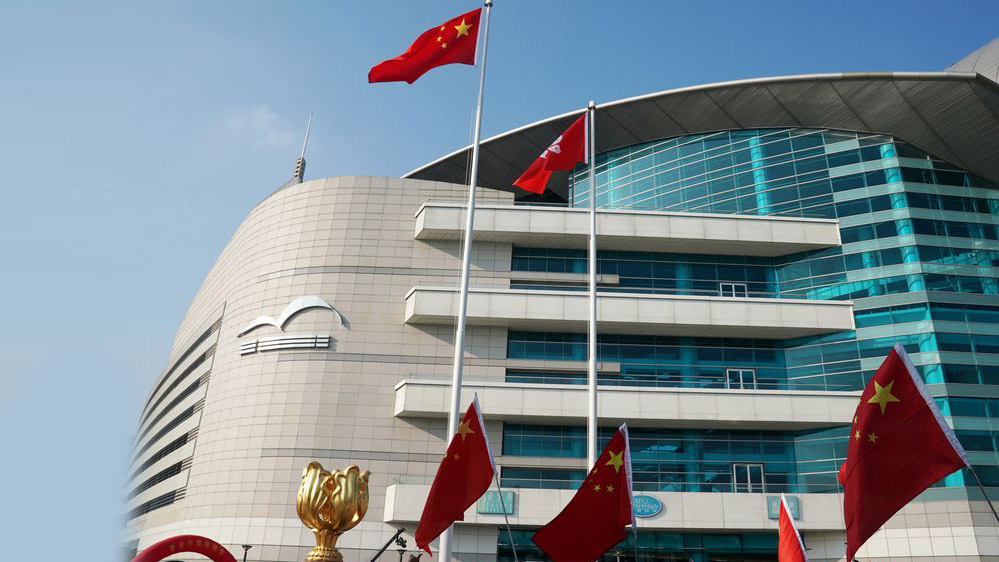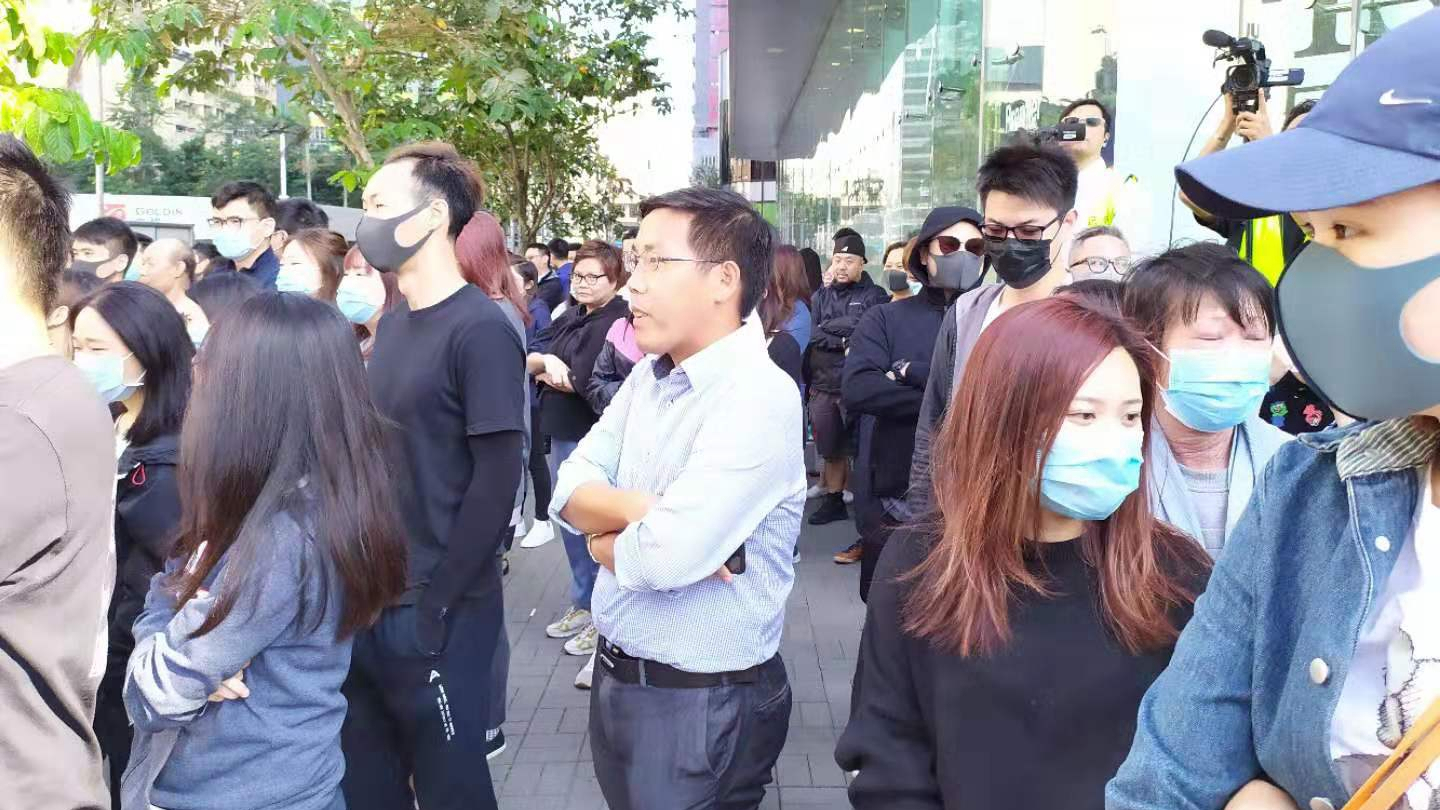
People attend a national flag raising ceremony at the Golden Bauhinia Square in Hong Kong, China, September 8, 2019. /Xinhua Photo
People attend a national flag raising ceremony at the Golden Bauhinia Square in Hong Kong, China, September 8, 2019. /Xinhua Photo
Editor's note: Tom Fowdy is a British political and international relations analyst and a graduate of Durham and Oxford universities. He writes on topics pertaining to China, the DPRK, Britain and the United States. The article reflects the author's opinions and not necessarily the views of CGTN.
I attended what was a "thanksgiving rally" in Central District, Hong Kong, on the night of November 28. The rally was geared toward "thanking" the United States for having passed the Hong Kong Human Rights and Democracy Act into law, with Donald Trump having reluctantly signed it on the morning of that day, following passage through congress.
Attendees waved American flags. Some called for sanctions on local politicians, and the U.S. national anthem was also sung. Beijing condemned the bill as an intervention into its internal affairs and vowed to retaliate if any measures were imposed in practice.
From my experience at the rally and observing the rhetoric on display, I am not quite sure Hong Kong people actually understand what is at stake or its implications. I wonder how many of them have actually read and studied the law in practice because there are several "catches." Demonstrators believe that Washington is sincerely backing them in a "fight for freedom."However, in practice, the act will diminish Hong Kong. It's not about democracy, but geopolitics. Its implications pose immediate political and other risks to the city's business and financial environment, which are magnified in the view that demonstrators believe they can do no absolutely wrong.
In the long term, these risks concern the city will likely be required to become compliant with several U.S. objectives, which might see its special status in Washington rescinded, ironically rendering it just another Chinese city.
Thus, while this law cannot change China's sovereignty over Hong Kong, it can serve to completely diminish the city. In effect, demonstrators were celebrating the city's likely decline.
The Hong Kong act was created and pushed by some of the most hawkish congressmen in the United States. Primary backers, such as Marco Rubio, are known as neoconservative because they pursue an aggressive, confrontational and zealous foreign policy line.

People in Hong Kong, China, November 27, 2019. /Photo by Tom Fowdy
People in Hong Kong, China, November 27, 2019. /Photo by Tom Fowdy
In doing so, rhetoric such as "freedom and democracy" serves as a means but never an end in itself to broader foreign policy objectives. In pursuing this act, their goal was to further derail China-U.S. relations and transform the city into a "hostile periphery" against Beijing to divide, weaken and also set the scene for a great power confrontation.
As a result, the text of the act itself is more interested in American foreign policy, than human rights and democracy. For example, sections 5 and 205 talk about the need for the city to comply with unilateral American sanctions on Iran and the Democratic People's Republic of Korea, along with anything that the United States deems a "threat to national security."
The act also demands that Hong Kong adhere to "U.S. export controls" and restrictions on "sensitive use technologies" – aspiring to export the U.S. trade war into Hong Kong against the Chinese mainland. The purpose of the act speaks for itself.
However, more important to discuss is the consequences. By passing this into law, even if nothing is applied in the short-term, in the long term, this act damages the confidence of American businesses, investors and financial institutions in the city by adding manifold political risks.
Potentially, Hong Kong could lose its free port and special status and be rendered just "another Chinese city." Continued unrest amplifies these risks.
Hong Kong was known for its famed stability and ability to win investor confidence, and this is what made it so successful. However, continued unrest, which is now likely to be exacerbated as the most violent protesters have in effect been "rewarded" rather than punished for their behavior, will see this as a green light to continue. They must recognize now that if they cannot get what they want, they can continue pursuing unrest without any condemnation.
However, it should be made abundantly clear that the city is a part of China. This is a reality that cannot be changed. Thus, while they will not achieve their radical ambitions, what they will achieve with Washington in the background is the sure decline of the city and everything that made it what it was.
Attending the rally last night, I am not sure those present realized this. It is not wrong to have legitimate concerns. Nevertheless, my feelings are that the movement is overwhelmingly self-absorbed, out of touch with reality in many aspects and has a massively exaggerated sense of its own victimhood.
Thus, this act is not going to help Hong Kong, and it will make conditions in the city worse for everyone, which is what Washington hawks truly aspire to achieve. By celebrating this, they are effectively teetering what they champion as "Asia's world city" into a pit of irrelevance.
(If you want to contribute and have specific expertise, please contact us at opinions@cgtn.com.)